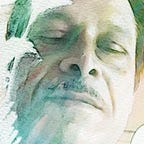Bureaucracy
Ever since Max Weber coined the word Bureaucrat, it has entered in the lexicon of sociology. The manager who used the rationale legal type of authority to legitimize his power is Bureaucrat. For Weber, the bureaucrat stood for reason and rationale. But Alvin Gouldner broke this assumption and bureaucrat began to be viewed as an old world obstacle to progress and modernity. The word has since become synonymous with red tape and unwanted delay. Terms like bureaucracy, bureaucrats and bureaucratic measures are being used with pejorative connotation. He is uncomfortable with innovation and creativity and generally perceived as contra progress. He will give ten reasons why something can not be done. He is someone who will always ask WHY and will get most uncomfortable when some maverick comes along and asks WHY NOT ? It is the people who ask this question are the ones who make a positive difference.
However Bureaucrat is a notion which is quite pluralistic and comes in variety of ways. Each variety has its own mentality, therefore variety of perception of the reality. These perceptions are result of their value system, therefore it leads to different types of attitudes. So it becomes critical to understand their mentality born out of their value system, perception and attitude. Following are the varieties of mentality displayed by these bureaucrats.
1- The RULE bound book keeping clerk mentality so that creativity is not a threat to your position.
2- The SAVE your own derriere mentality so that your in-expandability is assured.
3 - The STABILITY means status quo mentality so that innovation cannot dislodge your position.
4- The ONLY I will interpret the rules correctly mentality so that you can play favorites.
5- The KEEP up the chaos mentality so that no one watches you cheat.
6- The STAY vague on delegation mentality so that you can retain control.
7- The NEVER let anyone rise too fast mentality so that you continue to call the shots.
8- The DIVIDE and rule mentality so that there can be nobody strong enough to challenge your status.
These mentalities are not mutually exclusive and there is high chances that a bureaucrat may have two or more type of mentalities at the same time.
The bureaucrat is not an exclusive prerogative of public sector, he also has wormed his way into private sector in the guise of officer decades ago and executive in recent years.
Although bureaucracy has become synonymous with negative connotation, and the persons exhibiting the above mentioned traits have been given a title of mediocrat-bureaucrat, and he has to be devious to survive, it would be erroneous to generalize the term from the particular. There is no reason why a bureaucrat should be incompetent. In fact there are several examples where bureaucrats have been ethical, competent, reliable, efficient, effective and straightforward.
Buddhist philosophy has advocated that man's ego is his greatest enemy. Modern management gurus have hailed the corporate ego as necessary trait for competitive spirit and progress. Power in the form of ego has the ability to influence the decision and is perhaps the greatest stimulus. This power gives birth to politics and plays prime part in satiating one's desires. It leads managers to resort to all sorts of skullduggery and blackmail only to get what they intrinsically desire. People who are otherwise decent have been known to blatantly cheat, lie, frame, and resort to indecent codes of conduct just to get what they want. Their conscience is dormant while these nefarious activities go on in full swing. Non-industrial organizations, charitable trusts and even institutions of learning aren't immune to this.
The issue is, does absolute power corrupts absolutely or the fear of losing power corrupts absolutely?
Dr Satish.
